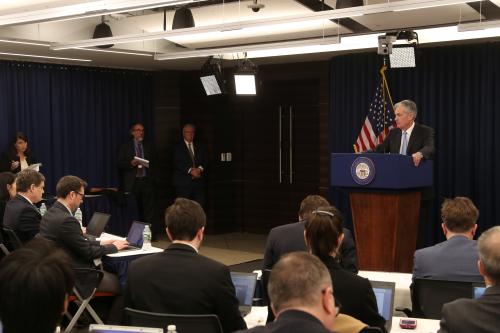2025
In the fall of 2021, the U.S. and 136 other nations representing more than 95 percent of global GDP agreed to change the way multinational corporations are taxed. Treasury Secretary Janet Yellen says the two-pillar OECD/G-20 Base Erosion and Profit Shifting (BEPS) agreement will end the “damaging race to the bottom on corporate taxation” that each year deprives countries of billions of dollars in tax revenue. Pillar 1 will for the first time allocate a share of the largest multinationals’ profits to countries where their goods are consumed. Pillar 2 will combat tax competition by encouraging countries to adopt a global minimum tax on corporations’ foreign income at a rate of 15 percent.
On Friday, April 15, the Hutchins Center on Fiscal & Monetary Policy and the Urban-Brookings Tax Policy Center hosted an event to explain the significance of the agreement; how it will affect multinational corporations, advanced economies, and developing economies; and the prospects for its implementation.
During the live event, the audience submitted questions at https://www.sli.do/ using the code #GlobalTax or joined the conversation on Twitter using the hashtag #GlobalTax.
In Partnership With
Agenda
-
April 15
-
Welcome
 David Wessel Director - The Hutchins Center on Fiscal and Monetary Policy, Senior Fellow - Economic Studies @davidmwessel
David Wessel Director - The Hutchins Center on Fiscal and Monetary Policy, Senior Fellow - Economic Studies @davidmwessel -
What is in the global tax treaty? A primer
-
What impact will the agreement have, if implemented?
-
What lies ahead? The view from the Treasury
Moderator
 David Wessel Director - The Hutchins Center on Fiscal and Monetary Policy, Senior Fellow - Economic Studies @davidmwessel
David Wessel Director - The Hutchins Center on Fiscal and Monetary Policy, Senior Fellow - Economic Studies @davidmwessel
-








